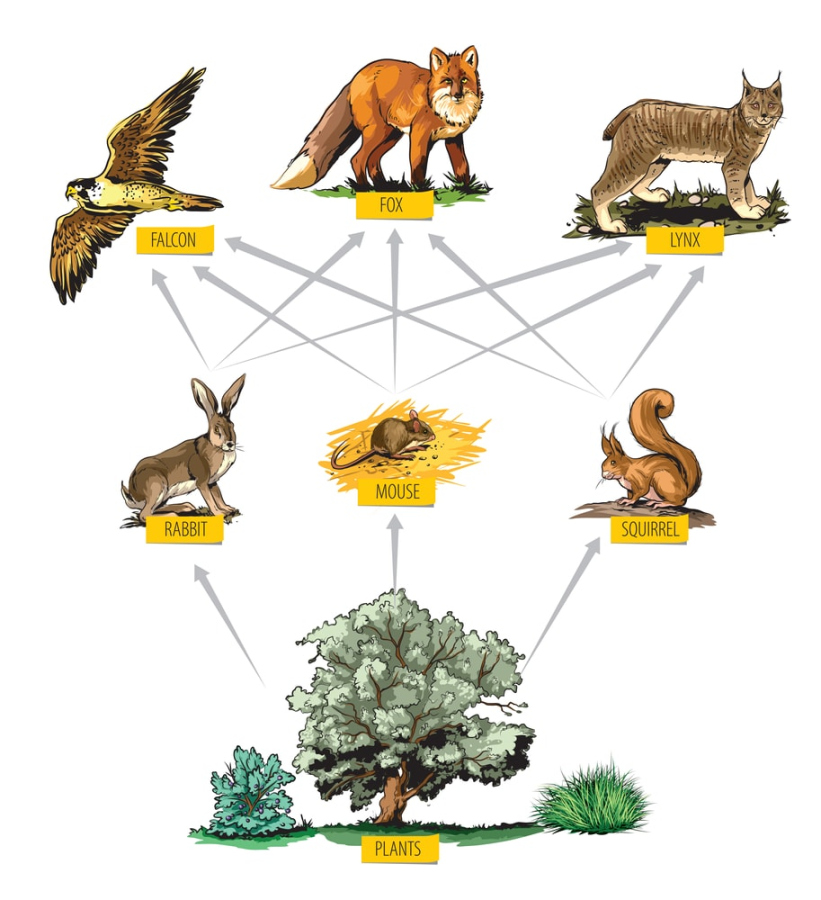The Rabbit’s Place in the Food Chain
In any ecosystem, animals are interconnected through a complex web of interactions known as food chains. These food chains illustrate the flow of energy from one organism to another as they consume and are consumed. Rabbits, being herbivores, play a crucial role in the food chain by acting as prey for a variety of predators. Understanding what eats a rabbit is essential in comprehending the delicate balance and interdependence of a particular ecosystem.

Predators of Rabbits
Natural Predators
In nature, rabbits have evolved various adaptations to help them avoid predators. However, many animals have evolved to specifically prey upon rabbits. Some of the most common natural predators that eat rabbits include:
- Foxes: Foxes are skilled hunters and are known to prey upon rabbits, especially during their breeding season when they are more vulnerable.
- Coyotes: Coyotes are opportunistic predators and will readily consume rabbits when given the chance.
- Birds of Prey: Raptors like hawks, eagles, and owls are known to swoop down and capture rabbits with their sharp talons.
- Snakes: Some snake species, such as the rattlesnake, will prey upon small mammals like rabbits.
- Bobcats: Bobcats are skilled hunters and are known to actively hunt rabbits as part of their diet.
- Domestic Dogs: Domestic dogs that are not properly supervised or are allowed to roam freely can pose a threat to rabbits.
Human Predators
Aside from natural predators, rabbits are also hunted by humans. While not directly linked to the food chain, human predation is a significant factor that affects rabbit populations in certain areas. People hunt rabbits for food, fur, or recreational purposes, leading to a decrease in their numbers in some regions.
The Importance of Rabbit Predation
The predation of rabbits plays a vital role in maintaining the balance of an ecosystem. Predators help control rabbit populations, preventing them from overgrazing and negatively impacting the vegetation in their habitat. By keeping rabbit populations in check, predators indirectly contribute to the overall health and sustainability of the ecosystem.
It is important to note that while predators help regulate rabbit populations, excessive predation can also have adverse effects on the ecosystem. The loss of a key prey species like the rabbit can disrupt the food chain and lead to cascading impacts on other organisms within the ecosystem.
FAQs about What Eats a Rabbit
1. Are rabbits always part of the food chain?
Yes, rabbits are an integral part of most terrestrial food chains. They serve as prey for a variety of predators and play a crucial role in transferring energy from plants to higher trophic levels.
2. Do rabbits have any defense mechanisms against predators?
Yes, rabbits have several defense mechanisms to help them evade predators. These include their exceptional speed and agility, their ability to burrow into underground burrows, and their camouflage abilities.
3. Can rabbits defend themselves against predators?
Rabbits are not equipped with strong physical defenses and primarily rely on their agility and speed to escape from predators. However, if cornered, rabbits may attempt to fight back by using their sharp claws and powerful hind legs.
4. How do predators benefit from eating rabbits?
Predators benefit from consuming rabbits as they provide a valuable source of nutrition. Rabbits are relatively abundant and can provide predators with a high-energy meal, helping them survive and reproduce.
In conclusion, rabbits are an essential component of various food chains, serving as prey for a range of natural predators. Understanding the predators of rabbits and their role in the ecosystem is crucial for maintaining a healthy balance within the environment. By keeping rabbit populations in check, predators indirectly contribute to the overall stability and sustainability of the ecosystem. However, it is essential to recognize that excessive predation can have adverse effects on the ecosystem, emphasizing the delicate balance that exists in nature.
Related Articles…
Copyright Notice:
All images featured on this site are sourced from the internet, copyrights belong to respective owners. Should you own any image and require it to be removed, please contact us.